#power bi migration
Explore tagged Tumblr posts
Text
With 2025 only a few months away, migrating to Microsoft Power BI is more than a technical upgrade. It is a strategic decision that provides the best ROI, flexibility, and information relevant to your industry.
0 notes
Text
Effective Data Governance in Power BI: Ensuring Compliance and Quality
In a world where data drives decision-making, managing data assets efficiently becomes crucial for businesses. Power BI, a leading Business Intelligence (BI) platform, provides robust capabilities for reporting and dashboards but requires a solid data governance framework to harness its full potential. Effective data governance in Power BI ensures data quality, compliance, and security, empowering business users to make informed decisions based on reliable data. This blog delves into key strategies for establishing data governance in Power BI, focusing on the adoption road-map, data model management, and compliance with regulatory requirements.

Understanding Data Governance in Power BI
Data governance in Power BI involves implementing policies and procedures to manage data quality, security, and compliance within the platform. It encompasses several aspects, including data model design, data source management, and access controls. A comprehensive data governance framework helps organizations maintain data integrity and ensure business users have reliable and secure access to BI content.
Developing a Robust Data Governance Framework
A well-defined data governance framework is essential for managing data assets effectively. This framework outlines the policies and procedures for data management, including data quality standards, access controls, and compliance requirements. In Power BI, the framework should address the following areas:
Data Model Design: The data model in Power BI serves as the foundation for reports and dashboards. A well-designed data model ensures accurate data representation and facilitates effective data analysis. The data governance framework should establish guidelines for designing data models that meet organizational needs and adhere to data quality standards.
Data Source Management: Managing data sources involves ensuring that the data ingested into Power BI is accurate, complete, and timely. The data governance framework should include procedures for validating data sources, managing data integration, and maintaining data quality throughout the data lifecycle.
Access Controls: Effective data governance requires implementing access controls to restrict data access based on user roles and responsibilities. In Power BI, this involves setting up user roles, permissions, and sensitivity labels to protect sensitive data and ensure compliance with regulatory requirements.
Strategies to Implement Data Governance in Power BI
To effectively govern data in Power BI, organizations should focus on several key strategies:
Adoption Road-map: Developing an adoption road-map helps organizations plan and execute data governance initiatives. The road-map should outline the steps for implementing governance policies, including training for business users, establishing data stewardship roles, and integrating governance practices into daily operations.
Governance Planning: Governance planning involves defining the objectives and scope of data governance initiatives. This includes identifying key stakeholders, setting governance goals, and establishing metrics to measure the effectiveness of governance practices. In Power BI, governance planning should align with the organization's overall data management strategy and address specific BI content and data assets needs.
Maintaining Data Quality: Ensuring data quality is critical to data governance. Power BI provides tools for monitoring and improving data quality, such as data validation rules, data profiling, and error reporting. The data governance framework should include procedures for maintaining data quality, addressing data issues, and implementing corrective actions as needed.
Ensuring Security and Compliance
Security and compliance are paramount in data governance, especially when dealing with sensitive data. Power BI offers several features to support security and compliance, including:
Sensitivity Labels: Sensitivity labels help classify and protect sensitive data within Power BI reports and dashboards. Labels can be applied to data sources, datasets, and reports to enforce data protection policies and ensure compliance with regulatory requirements.
Access Controls and Permissions: Implementing access controls and permissions helps restrict data access to authorized users. Power BI enables organizations to set up role-based access controls, manage user permissions, and enforce data security policies.
Regulatory Requirements: Adhering to regulatory requirements is crucial for maintaining data compliance. The data governance framework should address compliance with GDPR, HIPAA, and CCPA regulations. This includes ensuring that data handling practices align with regulatory standards and implementing measures to safeguard sensitive data.
Managing Data Assets and BI Content
Effective management of data assets and BI content is essential for successful data governance in Power BI. This involves:
Data Asset Management: Managing data assets involves tracking and controlling data throughout its lifecycle. Power BI includes monitoring data usage, managing data sources, and ensuring data quality across reports and dashboards.
BI Content Management: Managing BI content involves organizing and maintaining reports, dashboards, and other BI artifacts. This includes establishing naming conventions, version control, and documentation practices to ensure that BI content remains accurate and up to date.
Conclusion
Implementing effective data governance in Power BI is crucial for ensuring data quality, security, and compliance. By developing a robust data governance framework, focusing on key strategies such as governance planning and, maintaining data quality, and ensuring security and compliance, organizations can leverage Power BI's full potential to drive informed decision-making. A well-executed data governance strategy enhances the reliability of BI content and builds trust among business users by providing them with accurate, secure, and compliant data.
As organizations continue to rely on data for strategic decisions, prioritizing data governance in Power BI will help maintain data integrity and effectively support business objectives. By adhering to best practices and continuously refining governance practices, businesses can ensure that their Power BI implementations deliver valuable insights while meeting regulatory and security requirements.
0 notes
Text
Unlock Business Growth with Data-Driven Insights
In today’s fast-paced digital landscape, businesses generate massive amounts of data every day. However, the true power of data lies in how it is analyzed and used to drive decision-making. Office Solution, an Authorized Microsoft Partner based in Chicago, helps businesses transform raw data into actionable insights. Since 2012, we have empowered 500+ Fortune enterprises with innovative, technology-driven solutions, ensuring real business impact and long-term success.
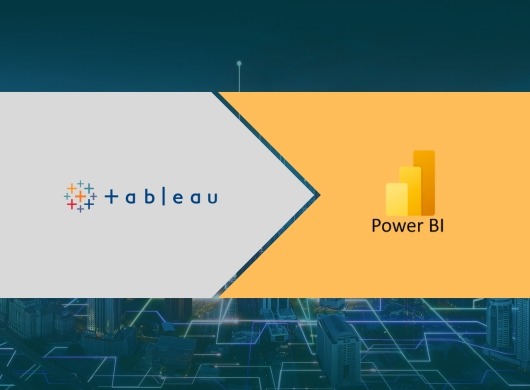
Why Data-Driven Decision-Making Matters
Data is no longer just a byproduct of business operations—it is the key to unlocking growth, efficiency, and competitive advantage. Companies that leverage data effectively can:
✅ Enhance Operational Efficiency – Identify inefficiencies and streamline processes to reduce costs. ✅ Improve Customer Experiences – Gain deeper insights into customer behavior and tailor services accordingly. ✅ Boost Revenue Growth – Use predictive analytics to make smarter investment and marketing decisions. ✅ Mitigate Risks – Detect potential threats and challenges before they impact business performance.
At Office Solution, we help businesses harness the power of big data, analytics, and statistical modeling to make informed decisions that drive success.
Our Expertise in Data Analytics and Business Intelligence
With over 10 years of experience and 1000+ man-years of offshore delivery, we offer end-to-end data solutions tailored to the unique needs of businesses. Our Impact Consulting approach ensures that your data is not just collected but transformed into valuable business insights.
���� Big Data & Advanced Analytics
We help businesses process and analyze massive datasets to uncover patterns, trends, and opportunities. Our team of experts applies advanced analytics to predict future outcomes and optimize business strategies.
🔹 Business Intelligence Solutions
We create intuitive, Microsoft-powered BI dashboards that provide real-time insights, helping businesses make data-driven decisions with confidence.
🔹 Predictive & Statistical Modeling
Using cutting-edge statistical techniques, we help organizations anticipate future trends, customer behaviors, and market shifts. This allows businesses to stay ahead of the competition.
🔹 Cloud-Based Data Solutions
As a Microsoft Partner, we specialize in integrating cloud solutions such as Azure Data Services to ensure seamless, scalable, and secure data management.
Bridging the Gap Between Data Creation and Consumption
One of the biggest challenges businesses face is translating raw data into actionable strategies. At Office Solution, we bridge the gap between data creation and consumption, ensuring that your analytics drive measurable business improvements. Whether it’s optimizing supply chains, improving financial forecasting, or enhancing customer retention, we help businesses turn insights into impact.
Drive Business Growth with Office Solution
Your business deserves a data strategy that delivers real results. Partner with Office Solution and let us help you harness the full potential of your data. Contact us today to explore customized solutions that drive growth, efficiency, and long-term success.
📞 Call us at [+1(315) 5631684] 📧 Email us at [[email protected]] 🌐 Visit us at [https://tableautopowerbimigration.com/]
0 notes
Text
Streamline Your Workflow with Microsoft 365 Suite Deployment Services in 2025
In today’s fast-paced business environment, achieving efficiency and seamless collaboration is critical to staying ahead. The Microsoft 365 Suite offers a comprehensive range of tools designed to streamline workflows, enhance productivity, and foster better communication. However, to unlock its full potential, businesses need tailored deployment services that align with their specific goals and operational requirements.

Why Microsoft 365 Suite is Essential in 2025
Unified Communication and Collaboration Microsoft Teams, SharePoint, and Outlook provide integrated platforms that support real-time communication, file sharing, and collaboration across teams—whether they’re in the same office or dispersed globally.
Enhanced Productivity with AI and Automation Tools like Microsoft Viva and Power Automate bring AI-driven insights and automation capabilities, enabling businesses to reduce manual tasks and focus on strategic initiatives.
Scalable and Secure Solutions With advanced security features and compliance tools, Microsoft 365 ensures businesses can scale their operations confidently while safeguarding sensitive data.
Flexibility for Hybrid Work Models The suite’s cloud-based architecture empowers employees to work from anywhere, ensuring a seamless transition between remote and on-site operations.
The Importance of Professional Deployment Services
While Microsoft 365 offers robust features, implementing it effectively can be challenging without expert guidance. Professional deployment services are crucial for:
Customised Solutions: Tailoring the suite’s features to your business’s unique needs ensures maximum ROI.
Efficient Migration: Migrating data from legacy systems with minimal disruption requires technical expertise.
Training and Support: Ensuring your teams are equipped to leverage the suite effectively enhances adoption rates.
Ongoing Optimisation: Regular assessments and updates keep your systems aligned with evolving business objectives.
Addressing Modern Business Challenges
Reducing Silos By integrating tools like Teams, OneDrive, and Planner, organisations can eliminate data silos and promote cross-departmental collaboration.
Improving Decision-Making Power BI within Microsoft 365 provides actionable insights through real-time analytics, enabling leaders to make informed decisions swiftly.
Boosting Employee Engagement Features like Viva Insights prioritise employee well-being and productivity, helping organisations retain top talent.
Key Considerations for Microsoft 365 Deployment
Assess Your Business Needs: Understand your current challenges and how Microsoft 365 can address them.
Plan for Change Management: Foster a culture of adaptability to ensure smooth adoption.
Focus on Security: Leverage tools like Microsoft Defender to mitigate cybersecurity risks.
Partner with Experts: Collaborate with experienced providers to ensure a seamless deployment process.
Conclusion
Microsoft 365 Suite is not just a productivity tool; it’s a strategic asset for driving innovation and efficiency in 2025. By partnering with a trusted deployment service provider, businesses can ensure a smooth transition, empowering their teams to achieve more while staying agile in a competitive landscape.
Ready to revolutionise your workflow? Explore how Microsoft 365 Suite deployment can transform your business today.
#Microsoft 365 Suite deployment#Microsoft 365 migration services#Cloud-based collaboration tools#Hybrid work solutions#Microsoft Teams integration#Secure data management#AI-driven business tools#Customised Microsoft 365 implementation#Enhanced business collaboration#Power BI analytics for businesses#Microsoft 365 professional deployment#Data security in Microsoft 365#Employee engagement with Microsoft Viva
0 notes
Text
A Brief Overview of Migrating Your On-Prem SSRS to Azure Power BI
Ever thought about moving your SQL Server Reporting Services (SSRS) from the comfort of its on-premise setup to the cloud? With Azure and Power BI waving from the horizon, it’s a journey worth considering. This leap not only catapults your business intelligence (BI) tools into the future but also taps into Azure’s scalability and Power BI’s slick analytics. But let’s not sugarcoat it; this…
View On WordPress
#Azure SQL Database#Cloud BI transformation#Power BI integration#Power BI report optimization#SSRS to Azure migration
0 notes
Text
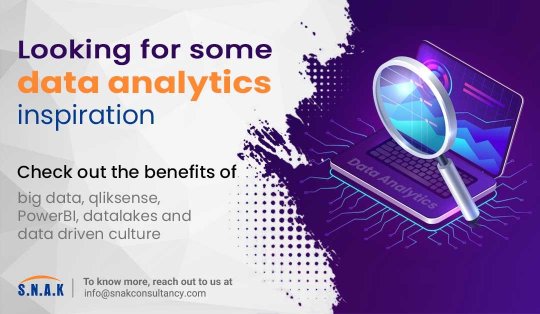
Best Data Analytics Solutions provider company with Big Data and Migration, Snowflake and Power BI Solution- SCS
0 notes
Text
Best Mobile App Development Services in Saudi Arabia by Mobcoder
At Mobcoder, we take pride in offering the best mobile app development services in Saudi Arabia. Our commitment to excellence, innovative solutions, and dedication to providing top-tier services have positioned us as a leading force in the industry. We understand the unique needs of businesses and individuals seeking to bring their ideas to life through mobile applications.
Original Source - https://mobcoder.wordpress.com/2023/11/06/best-mobile-app-development-services-in-saudi-arabia-by-mobcoder/
#best ar app development company in india#it consulting service in india#hire flutter developers in usa#mobile application development company in india#best mobile app consulting services#web app development company in usa#Power BI Development Solutions#DevOps consulting company#Best SAP Migration Services in USA
1 note
·
View note
Text
What's frustrating about being a supporter of a mlm ship is the immediate presumption of the shippers' identity as a "cis heterosexual woman" who fetishsizes homosexuality (not that that problem doesn't exist, but that's not what this post is for).
Our identities also include:
Cis gay man
Gay/bi/pan trans/woman/man/enby
Cis/trans polyamorous gay/bi/pan woman/man/enby
Cis/trans gay/bi/panromantic asexual woman/man/enby
On and on, the intersections within the LGBTAI+ community are infinite.
Yet our mainstream media shies away from canonizing mlm relationships on screen, by whatever arbitrary measure deemed correct by the heteronormative power structure, which means bi or pansexuality and gender fluidity can be masked beneath an optically cis heterosexual relationship that is spoken of as queer only in dialogue.
I am a queer person. The argument I most often see is that being in a relationship with someone of the opposite gender doesn't negate a person's bi or pansexuality. This is ABSOLUTELY TRUE in real life. I'm in such a partnership, and here's the thing ...
When I share my queer identity with others and they see my partner of 15 years, the question I get asked is:
"How can you still be ×-sexual if you're in a heterosexual relationship?"
It is as though, by committing to someone who presents as the opposite gender, my lived experience (all the people I loved deeply in the past; the pain of coming out not once, not twice, but three times; the pain of permanently cutting off people in my life) was completely erased. My partner and I are optically viewed as "straight" despite how we actually define our individual genders and sexuality. Despite continuing to feel queer attraction. Despite continuing to remember previous queer loves with incredible fondness. Despite still celebrating with friends in the community and proudly bearing my flags.
This is why I truly believe there needs to be a greater push for more same-sex representation ON SCREEN in the MAINSTREAM. We cannot have authentic stories of the queer experience without it. It is a stepping stone to representing all the other identities that are swept under the rug. There is a big difference between knowing who you are in real life and interpreting what big money media is doing with your identity for the sake of pleasing the heteronormative masses and offering only subtext for the queer community in order to get the highest amount of views. Subtext, which by the way, is immediately dismissed as reading too deeply into it!
Well, guess what? Being queer inherently means reading deeply into subtext. This has been our language for decades. I should know, I'm OLD. Picking up subtle cues was and is part of queer courtship in real life because you absolutely could not out yourself in public. In more than half of the U.S. that is STILL the case!
I have a very close cis straight friend who thought Korrasami came out of nowhere. I had to sit them down and explain all the little cues, including the infamous hairpin in Asami's lips close-up. They remarked, "Wow, that's a lot of work. Is that how it worked when you tried to meet someone in public?"
YES! And it's 2023 coming on 2024, and we still have to go through this extra bullshit cis heterosexual people take for granted! If there is even a hint of queer mlm romance, you know what happens? They either get separated or killed or BOTH!
They are separating us and killing us on screen because we can only exist in subtext and tragedy. And then, when we dare to hope another ship might make it, that finally, we will have our moment in the sun, we are told:
"You weren't baited. Nothing was confirmed. What did you expect? They're just friends. You looked too deeply into it and did this to yourself. You are gross and keep migrating from one gay ship to another, you homosexual fetishsizing misogynistic pervert."
These people take intersectional social justice language and weaponize it against us. They moralize us on our own identities without even knowing who we are or what we've been through. They think we're desperate and delusional for the audacity of hoping we might see a happy ending that reflects us in the mainstream.
I am so, so tired.
#lgbtqia#lgbtq community#queer community#queer#representation matters#lgbt representation#queer representation#loki#mobius#lokius#loki series#dean winchester#castiel#destiel#house md#gregory house#james wilson#hilson
59 notes
·
View notes
Text
Discovering the world
Lebanon 🇱🇧
Basic facts
Official name: الجمهورية اللبنانية (al-Jumhūrīyah al-Lubnānīyah) (Republic of Lebanon)
Capital city: Beirut
Population: 5.3 million (2023)
Demonym: Lebanese
Type of government: unitary parliamentary republic
Head of state: vacant (President)
Head of government: Najib Mikati (Prime Minister)
Gross domestic product (purchasing power parity): $78.23 billion (2022)
Gini coefficient of wealth inequality: 31.8% (medium) (2011)
Human Development Index: 0.723 (high) (2022)
Currency: pound (LBP)
Fun fact: It hosts the highest number of refugees per capita and per square kilometer.
Etymology
The country’s name comes from Mount Lebanon, whose name derives from the Phoenician root lbn, meaning “white”.
Geography
Lebanon is located in West Asia and borders Syria to the north and east, Israel to the south, and the Mediterranean Sea to the west.
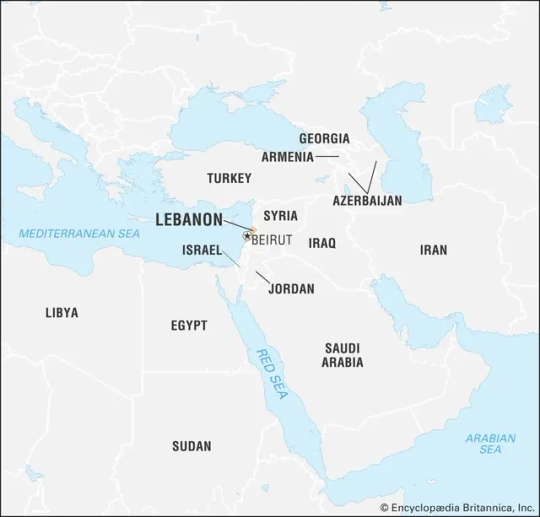
There are two main climates: Mediterranean-influenced humid continental in the center and east and hot-summer Mediterranean in the rest. Temperatures range from 11 °C (51.8 °F) in winter to 30 °C (86 °F) in summer. The average annual temperature is 20.9 °C (69.6 °F).

The country is divided into nine governorates (muḥāfaẓāt), which are further divided into twenty-five districts (aqdyah). The largest cities in Lebanon are Beirut, Tripoli, Jounieh, Zahlé, and Sidon.
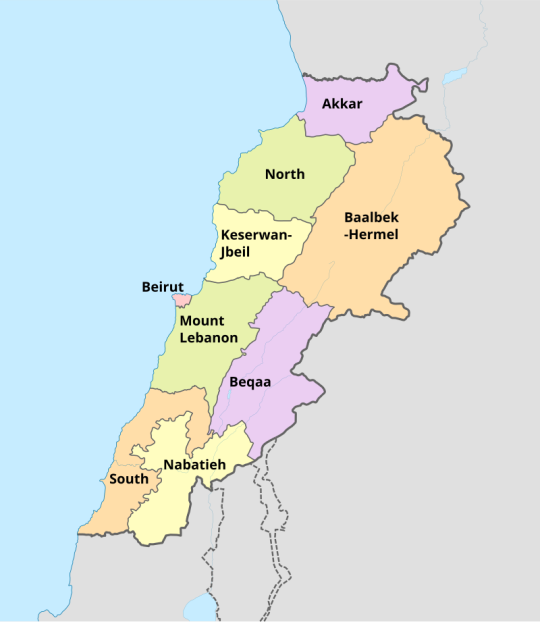
History
2500-64 BCE: Phoenicia
1650-1180 BCE: Hittite Empire
1550-1069 BCE: New Kingdom of Egypt
550-332 BCE: Achaemenid Empire
332-64 BCE: Seleucid Empire
64 BCE-394 CE: Roman Empire
394-635: Byzantine Empire
619-629 CE: Sasanian Empire
636-661: Rashidun Caliphate
661-750: Umayyad Caliphate
750-1517: Abbasid Caliphate
1099-1291: Kingdom of Jerusalem
1102-1289: County of Tripoli
1250-1516: Mamluk Sultanate
1516-1842: Emirate of Mount Lebanon
1516-1918: Ottoman Empire
1843-1861: Double Qaim-Maqamate of Mount Lebanon
1860: civil conflict in Mount Lebanon and Damascus
1915-1918: Great Famine of Mount Lebanon
1920-1926: State of Greater Lebanon
1923-1946: Mandate for Syria and the Lebanon
1926-1943: Lebanese Republic
1943-present: Republic of Lebanon
1948: Arab-Israeli War
1975-1990: Lebanese Civil War
1976-2005: Syrian occupation
1985-2000: South Lebanon conflict
2005: Cedar Revolution
2006: Lebanon War
2006-2008: protests
2007: Lebanon conflict
2011: Intifada of Dignity
2019: 17 October Revolution
2020: Beirut explosion
2021: Beirut clashes
Economy
Lebanon mainly imports from the European Union, Türkiye, and China and exports to the European Union, the United Arab Emirates, and Switzerland. Its top exports are diamonds, polyacetals, and gold.
It has natural gas, limestone, oil, and salt reserves. Services represent 83% of the GDP, followed by industry (13.1%) and agriculture (3.9%).

Lebanon is a member of the Arab League, la Francophonie, and the Organization of Islamic Cooperation.
Demographics
95% of the population is Arab, while Armenians make up 4%. The main religion is Islam, practiced by 55% of the population, 27.6% of which is Sunni.
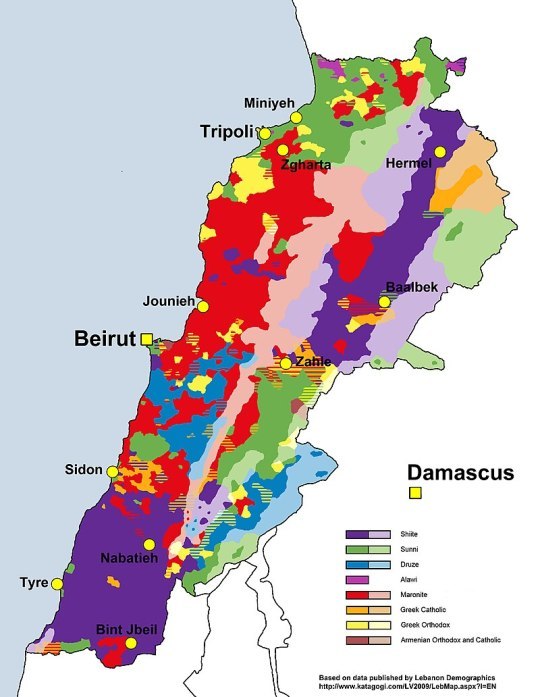
It has a negative net migration rate and a fertility rate of 1.7 children per woman. 89% of the population lives in urban areas. Life expectancy is 78.3 years and the median age is 31.3 years. The literacy rate is 96.7%.
Languages
The official language of the country is Arabic. French is spoken by 40% of the population.

Culture
Lebanese culture has Persian, Greek, Roman, Arab, Ottoman, and French influences. Lebanese people are very gregarious.
Men traditionally wear a shirt, a dark vest, baggy pants (sherwal), a belt, and a headdress. Women wear a shiny dress (gambaz), a wide belt, and a conical hat with a long piece of silk (tantur).

Architecture
Traditional houses in Lebanon are made of stone and wood and have flat roofs and terraces.

Cuisine
The Lebanese diet is based on fish, meat, pulses, and vegetables. Typical dishes include bamieh bi-zeit (okra and tomato stew), kibbeh (fried balls made of spiced meat and bulgur), sayadieh (seasoned fish and rice), sfouf (an almond-semolina cake), and tabbouleh (a salad of bulgur, onion, tomatoes, and parsley).

Holidays and festivals
Like other Christian and Muslim countries, Lebanon celebrates Epiphany, Armenian Christmas, St. Maroun Day, Feast of the Annunciation Day, Good Friday, Easter Sunday, Assumption, Christmas Day, Islamic New Year, Ashura, Mawlid, Eid al-Fitr, and Eid al-Adha. It also commemorates New Year’s Day and Labor Day.
Specific Lebanese holidays include Rafic Hariri Memorial Day on February 14, Liberation and Resistance Day on May 25, and Lebanese Independence Day on November 22.

Independence Day
Other celebrations include the Aerial and Circus Arts Festival, the Baalbeck International Festival, which features dance and music performances, and the Beiteddine Art Festival.

Baalbeck International Festival
Landmarks
There are six UNESCO World Heritage Sites: Anjar, Baalbek, Byblos, Ouadi Qadish (the Holy Valley) and the Forest of the Cedars of God (Horsh Arz el-Rab), Rachid Karami International Fair-Tripoli, and Tyre.

Ouadi Qadish and the Forest of the Cedars of God
Other landmarks include Jabal Moussa, the Mohammad Al-Amin Mosque, the Moussa Castle, Our Lady of Lebanon, and the Tripoli Citadel.

Tripoli Citadel
Famous people
Amin Maalouf - writer
Elie Saab - fashion designer
Fares Fares - actor
Jackie Chamoun - skier
Khalil Beschir - racing driver
May Ziade - poet and writer
Nadine Labaki - actress
Najwa Karam - singer
Ragheb Alama - singer
Rima Fakih - model

Rima Fakih
You can find out more about life in Lebanon in this post and this video.
7 notes
·
View notes
Text
Expert Power Platform Services | Navignite LLP

Looking to streamline your business processes with custom applications? With over 10 years of extensive experience, our agency specializes in delivering top-notch Power Apps services that transform the way you operate. We harness the full potential of the Microsoft Power Platform to create solutions that are tailored to your unique needs.
Our Services Include:
Custom Power Apps Development: Building bespoke applications to address your specific business challenges.
Workflow Automation with Power Automate: Enhancing efficiency through automated workflows and processes.
Integration with Microsoft Suite: Seamless connectivity with SharePoint, Dynamics 365, Power BI, and other Microsoft tools.
Third-Party Integrations: Expertise in integrating Xero, QuickBooks, MYOB, and other external systems.
Data Migration & Management: Secure and efficient data handling using tools like XRM Toolbox.
Maintenance & Support: Ongoing support to ensure your applications run smoothly and effectively.
Our decade-long experience includes working with technologies like Azure Functions, Custom Web Services, and SQL Server, ensuring that we deliver robust and scalable solutions.
Why Choose Us?
Proven Expertise: Over 10 years of experience in Microsoft Dynamics CRM and Power Platform.
Tailored Solutions: Customized services that align with your business goals.
Comprehensive Skill Set: Proficient in plugin development, workflow management, and client-side scripting.
Client-Centric Approach: Dedicated to improving your productivity and simplifying tasks.
Boost your productivity and drive innovation with our expert Power Apps solutions.
Contact us today to elevate your business to the next level!
#artificial intelligence#power platform#microsoft power apps#microsoft power platform#powerplatform#power platform developers#microsoft power platform developer#msft power platform#dynamics 365 platform
2 notes
·
View notes
Text
Finance Nouvelle Génération : Comment la Stratégie de Données Améliore Power BI
Cette vidéo explore l'impact de la stratégie de données sur l'amélioration de Power bi pour la finance de nouvelle génération. Découvrez les avantages de l’intégration des données, garantissant la qualité des données et tirant parti des analyses avancées. Les capacités de reporting en temps réel permettent de prendre des décisions en temps opportun, transformant ainsi la gestion financière. Une stratégie de données solide prend en charge la migration et la modernisation du cloud, permettant des processus financiers transparents et efficaces.
2 notes
·
View notes
Text
Transitioning from Tableau to Power BI - A Comprehensive Guide
The ability to extract actionable insights from vast datasets is a game-changer. Data visualization platforms like Tableau and Power BI empower organizations to transform raw data into meaningful visualizations, enabling stakeholders to make informed decisions. However, as businesses evolve and their data needs change, they may need to migrate from Tableau to Power BI to unlock new functionalities, enhance efficiency, or align with their broader IT infrastructure.
Understanding the Importance of Switching:

Transitioning from Tableau to Power BI is not just about swapping one tool for another; it's a strategic move with far-reaching implications. Several factors underscore the importance of Tableau to Power BI migration:
Cost Considerations:
The financial aspect often plays a significant role in decision-making. Tableau's licensing model can be a considerable expense for organizations, particularly for larger deployments. Conversely, Power BI offers flexible pricing options, including free tiers for individual users and cost-effective subscription plans for enterprises, making it a financially attractive alternative.
Integration with Existing Infrastructure:
Power BI's seamless integration with Azure, Office 365, and other Microsoft products is a compelling proposition for organizations entrenched in the Microsoft ecosystem. This integration fosters interoperability, streamlines data management processes, and promotes collaboration across departments, aligning with the organization's broader IT strategy.
Enhanced Analytics and Visualization Capabilities:
While Tableau is renowned for its advanced analytics features, Power BI distinguishes itself with its user-friendly interface and robust data visualization platforms. Power BI's integration with Excel, SQL Server, and other Microsoft applications empowers users to easily create interactive dashboards, reports, and data visualizations, democratizing data access and analysis across the organization.
Simplified Setup and Maintenance:
The ease of deployment and maintenance is another crucial consideration. Power BI's intuitive interface, comprehensive documentation, and robust community support simplifies the migration process, minimizing downtime and disruption to operations. Organizations familiar with Microsoft products will find Power BI's setup process relatively straightforward, further expediting the transition.
Key Considerations for Migration from Tableau to Power BI:
Before embarking on the migration journey, organizations must carefully assess various factors to ensure a seamless transition:
Data Compatibility: Evaluate the compatibility of existing data sources with Power BI to pre-empt any compatibility issues during the migration process. Conduct thorough testing to verify data integrity and identify any potential challenges.
Training and Support: Invest in comprehensive training programs to equip users with the skills and knowledge to effectively leverage Power BI. Consider engaging external support services to address technical challenges and provide ongoing assistance during and after the migration.
Customization Needs: Assess the organization's customization requirements and ascertain whether Power BI can accommodate them effectively. Collaborate with experts to tailor Power BI to business needs and optimize its functionality to drive maximum value.
Unlocking the Benefits of Migration from Tableau to Power BI:
Migrating from Tableau to Power BI offers a multitude of benefits for organizations seeking to harness the full potential of their data:
Cost Savings: By transitioning to Power BI, organizations can realize substantial cost savings through more economical licensing options and streamlined data management processes, enabling them to reallocate resources more efficiently.
Integration with Microsoft Ecosystem: Power BI's seamless integration with other Microsoft products facilitates data sharing, collaboration, and workflow automation, fostering operational efficiency and productivity gains across the organization.
User-Friendly Interface: Power BI's intuitive interface empowers users of all skill levels to create compelling visualizations, dashboards, and reports, democratizing data access and analysis and promoting data-driven decision-making at every level of the organization.
Advanced Analytics Capabilities: Leverage Power BI's advanced analytics tools, including machine learning capabilities and predictive analytics, to uncover hidden insights, identify trends, and drive innovation, enabling organizations to stay ahead of the curve in an increasingly competitive landscape.
Best Practices for a Smooth Transition:
Successfully moving from Tableau to Power BI requires careful planning, execution, and optimization. Here are some best practices to follow through the process:
Assess The Requirements: Conduct a thorough analysis of the organization's data visualization needs, technical requirements, and strategic objectives to inform migration strategy and prioritize key milestones.
Develop a Migration Plan: Create a detailed migration plan delineating key milestone, timelines, resource requirements, and stakeholder responsibilities to ensure a structured and coordinated approach to the migration process.
Test and Validate: Before migrating critical data and workflows, conduct rigorous testing and validation to identify and address potential issues, errors, or compatibility challenges, minimizing the risk of disruptions during the migration.
Provide Comprehensive Training: Invest in comprehensive training programs to equip users with the skills, knowledge, and confidence to leverage Power BI effectively and maximize its value across the organization. Offer ongoing support and resources to facilitate continuous learning and skill development.
Monitor and Optimize: Continuously monitor the migration process, user adoption rates, and performance metrics to identify areas for improvement, optimization, and ongoing support. Solicit feedback from stakeholders to address concerns and ensure alignment with business objectives.
Migrating from Tableau to Power BI represents an opportunity for organizations to unlock new capabilities, drive innovation, and gain a competitive edge in today's data-driven landscape. While the migration journey may present challenges, with proper planning, execution, and support, organizations can successfully navigate these challenges and realize Power BI's full potential. Nous specializes in helping organizations seamlessly migrate from Tableau to Power BI. The team of experts offers comprehensive migration services, including strategy development, technical implementation, user training, and ongoing support, to ensure a smooth and successful transition.
#data analytics solutions#data visualization#power bi migration#microsoft power bi#power bi services#tableau#data migration
1 note
·
View note
Text
Tafsir Ibn Kathir: Surah Al-Nahl Ayah 41-42
In the Name of Allah, the Most Gracious, the Most Merciful.
16:41 And as for those who emigrated for the cause of Allah, after they had been wronged, We will certainly give them good residence in this world, but indeed the reward of the Hereafter will be greater; if they but knew!
16:42 (They are) those who remained patient, and put their trust in their Lord.
The Reward of the Muhajirin
Allah tells:
And as for those who emigrated for the cause of Allah, after they had been wronged,
Allah tells us about the reward of those who migrated for His sake, seeking His pleasure, those who left their homeland behind, brothers and friends, hoping for the reward of Allah.
This may have been revealed concerning those who migrated to Ethiopia, those whose persecution at the hands of their own people in Makkah was so extreme that they left them and went to Ethiopia so that they would be able to worship their Lord.
Among the most prominent of these migrants were Uthman bin Affan and his wife Ruqayyah, the daughter of the Messenger of Allah, Jafar bin Abi Talib, the cousin of the Messenger, and Abu Salamah bin Abdul-Asad, among a group of almost eighty sincere and faithful men and women, may Allah be pleased with them. Allah promised them a great reward in this world and the next.
Allah said:
We will certainly give them good residence in this world, Ibn Abbas, Ash-Sha`bi and Qatadah said:
(this means) "Al-Madinah.'' It was also said that;
it meant "good provision.''
This was the opinion of Mujahid.
There is no contradiction between these two opinions, for they left their homes and wealth, but Allah compensated them with something better in this world.
Whoever gives up something for the sake of Allah, Allah compensates him with something that is better for him than that, and this is what happened. He gave them power throughout the land and caused them to rule over the people, so they became governors and rulers, and each of them became a leader of the pious.
Allah tells us that His reward for the Muhajirin in the Hereafter is greater than that which He gave them in this world, as He says:
but indeed the reward of the Hereafter will be greater,
meaning, greater than that which We have given you in this world.
if they but knew!
means, if those who stayed behind and did not migrate with them only knew what Allah prepared for those who obeyed Him and followed His Messenger.
Then Allah describes them as:
those who remained patient, and put their trust in their Lord.
meaning, they bore their people's persecution with patience, putting their trust in Allah Who made their end good in this world and the Hereafter.
5 notes
·
View notes
Note
How do you think things would’ve played out with Percahlia if, for whatever reasons, they weren’t able to have kids together? I know they’re both family ppl, but I also know that Percy holds lineage in high regard. Personally I don’t think they would let that’d prevent them from being together; they love each other too much and I think they would hate to let the other go due to something like that (esp. since adoption and/or Wish are options) but I wanted to see what you think on the matter. :)
Hi anon! Sorry this is so tardy, I've been very busy the last few days.
I agree? I don't really have much to say on the matter: their relationship isn't built around the idea of building a family (it's not like they had dating profiles '23 / M / Bi / seeking to rebuild my family dynasty '), it's around their mutual trust and respect for eachother. Having kids is never to my knowledge brought up on stream until The Chapter Closes.
Percy does put a lot of himself into trying to rebuild Whitestone, but
a) Cass is also there, and could potentially have heirs of her own (though so far given the material we have to work with it seems like she's still without children as of Tal'Dorei Reborn, which is... starting to get a bit late. but, yknow, magic).
b) Percy explicitly brings up other branches of de Rolos, though how distant they are (do they predate the migration to Tal'Dorei? Are they still near to Whitestone?) and how complicated that'd be is up for debate. But they could take on a distant cousin as an heir.
c) It actually doesn't matter in the end, because Whitestone is lead by the Chamber, now. It's not a tiny little monarchy anymore - as much prestige and power as the living de Rolos hold, Percy specifically set up this system to give more power to the populace and decentralize it from the ruling family.
d) Yeah, adoption is a thing! There's bound to be a fuckton of orphans running around post-Briarwoods, post-Conclave and post-Vecna in areas affected by the respective messes. Tary finds Lawrence in Port Damali, so he could feasibly go 'hey besties there's some REALLY sad orphans here, do you want me to pick one up for you on the way home?' (I think Fjord would be too old to still be there timeline-wise, but that'd be a funny AU lmao.)
Hm. An AU where Vex and Percy adopt the aasimar boys (Kyor and Hunin) and make them the heirs could potentially be fun? And/or one examining half-elven biology and making half-elves incapable of having bio kids with humans, potentially due to chromosomal incompatibility, as is often the case for hybrids (though Keyleth is the product of a half-elven x half-elven union, so maybe they could only have kids with other half-elves? IDK could be fun to poke at).
But! Yeah. The answer is stupidly obvious and I just wanted to point out all the other options available because I can't help but ramble.
17 notes
·
View notes
Text
Accelerate Business with Power BI Consulting Services| ECF Data
ECF Data founded in the year 2010, and ever since then, we have been known for customer service and satisfaction. We have a team of experts understanding, strategizing, and building a suit-fit solution for your business needs. ECF Data is a Microsoft Gold Partner, helping its customer with Microsoft Services all across the Globe.
Our team of Power BI experts assists you throughout your journey with a proven methodology. We are always here to help with the up-gradation, migration, support, and maintenance of Power BI services.
Gold Microsoft Competencies of customer service Power BI Extensive Expertise Implemented BI Dashboards & Reports to 100s of customers Power BI Extensive Expertise
#Power Platform Consulting#Managed Services in las vegas#Power Platform Services in las vegas#IT Consulting in las vegas#IT Services in las vegas
1 note
·
View note
Text
Best Data Analytics Solutions provider company with Big Data and Migration, Snowflake and Power BI Solution- SCS
#power bi#Data Analytics Solutions provider#Best Data Analytics Solutions provider#Big Data and Migration
0 notes